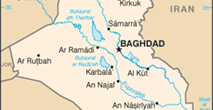(from the old Technologies of the Frontier website)

by Adriano Autino
We can observe that it is war, by itself, which produces this impotence, this regression of honest people to a bestial state, in which they give up and return to Nature’s laws, whereby the stronger kills the weaker. This is a true commentary on all the wars which have stained our planet with blood from the dawn of history to our times. Nevertheless there is a big difference between a guerrilla fought with handmade weapons, under desperate conditions, in a state of technological and logistic inferiority, and military operations carried out by a modern technologically well equipped army. Paradoxically, though we would rather sympathize with the courage and the abnegation of those who fights in conditions of inferiority, we have to acknowledge that they don’t generally have many alternatives to killing. While technological superiority, indeed, allows alternatives, in which awareness of strength is tempered by wisdom, and, above all, driven by political motives in which aspiration to a human state is a dominant ideological character, and with respect for the Law quoted by Mendel: do not kill. Obviously technological superiority, while it allows to choose behavioral models of higher ethical level, doesn’t absolutely guarantee anything. And it is always the free will of the people to choose an higher profile or the simplest logic: I am technologically superior, therefore I can kill you better!
The West is rediscovering these days the bestiality of the war. We are shocked by torture, but not for the thousands killed during these last generalized war years: Yugoslavia, Kosovo, September 11th 2001, Afghanistan, Irak, the continuous background of Palestine, the various forgotten wars, in Africa, the extermination of whole ethnic groups in the Asian South-East (e.g. the Montagniers, by the Vietnamese government). We feel a certain horror (out of habitand custom) at the deaths of innocent civilians, while we find normal and acceptable the deaths of soldiers – twenty year-old boys, nice and well brought-up to “respect for nature”. We put a rifle in their hands, and then the world collapses on us if they pass from “simple” murder to torture. In our dualist metaphysics, education to respect for nature prevailed, and often took on a character of conflict between respect for life and for human dignity. In this aspect our society reveals nowadays some Nazi ideological charactereristics, all the more dangerous for being completely uncontested, considering that the consciousness of their extreme dangerousness seems to be restricted, today, to small enclaves of awareness.
The war grafts itself onto such ideological ground, operating a series of intolerable semantic confusions. We entrust our national ideological, religious, identities, to military action, and we authorize it wrap them in a flag. Thus Mendel doesn’t say “to kill a Nazi”, he says “to kill a German”, thus offending all the human Germans who fought Nazism. So, facing the challenge of the Al Qaeda jiadistis, the war subculture brings us (also fomented by other ideologies, aimed at eradicating the supposed influence of Islam) to say “the Arabs”, or “the Muslims”. In the same way, those people who see in the belligerency of Mr. Bush the greatest danger, don’t say “the neo-conservatives”, but “the Americans”. The war operates as a gigantic bull-dozer, that reduces any difference and any reasoning, to the primitive logic: to kill or to be killed. When the whole of reality was pervaded by war, the only choice for humanists remained to choose the party that appears less suppressive of the human dignity and start fighting on its side. But as long as we are not in that situation, our first duty is to defend reason against generalisation, discimination against leveling down, being aware that, however, the violents and the generalisers don’t fight only by words. We also need a moral strength sufficient to oppose them ideologically, and a technological superiority to deter them on the militarily. Let’s also notice that technologic superiority is not necessarily a matter of quantity. On the contrary it is mainly a qualitative and analytical problem, and it would not be impossible to reduce military expenditure by improving the technology of weapon systems, in the direction of respect of life and of peoples’ safety.
Well, if the problem is one of fighting tyrannies and helping tyrannized people to gain freedom (and there is no doubt that this is a problem of today, although the western economic-military lobbies have other motivations in choosing which tyrannies to fight), we shall be fully aware that such a task cannot be accomplished without great moral strength and suitable technology. We, of the advanced post-industrial countries, could also not to be very far away from a similar state: technologies exist, while as to the moral strength, we wil3 work on it! We will have to be very more careful to who we will elect, as performers of shared wills, to cultivate very better the means of education, discussion and expression of the popular will, and to favor the education of our young people to politics, to a mature and aware strength.
It is this matter of killing that shall come to an end. In the killing, as in the torture, there’s only the regression to the natural ferocity, to the bestial instincts. Who pushed our boys over the fragile border line which delimits the human status from the beast one? Once people overcome that border, they don’t have respect of themselves anymore: therefore, there is not then such a great difference between the killing and the torture.
If we go to Irak to kill and torture, it is better that we don’t go there. They kill us, we kill them. They cut our heads, we torture them. There is no education in all this. We don’t show the superiority of democracy on their tribal systems, provided that this was a ground of comparison.
The most technological nations of the planet are not still able to show their own superiority without killing. And also Israel, beacon of technologic culture in the Middle East, is only able kill Palestinians, instead of sharing with the Palestinian boys their scientific and technological know-how. They kill us, we kill them too: also our ideological models of last century taught us to kill. Well, in Ireland, and in the Basque land, and in the Palestine itself, did they perhaps resolve any problem by continuing to kill themselves for so much time?
Now it is long enough: this history of killing shall come to end, immediately. Mahatma Gandi didn’t kill, yet he won. Gandi testified the moral reasons of his own people, and the nations that wanted to be democratically more advanced couldn’t not to recognize them. If Palestinians (and here the use of the name of a people is justified, considering that it is a whole people, sent away and oppressed) they had a Gandi as leader, rather than Arafat, they would probably have gotten their rights since a long time, and their children would have by now a very different future from the one of the slaughterist suicide. There is a huge and substantial difference among Palestinians and jiadists: Palestinians have a very strong moral reason for their struggle, since they have been outcast from their houses and oppressed for more than fifty years. What they seem not to understand (because too influenced by the jiadism and by other hate preaching ideologies) it is that their enemies are not the hitlerian Nazis, against whose the only way was to fight, kill and die. Israel is a democracy, and Mr. Sharon would not even ever been elected, if Palestinians had fought for their rights by gandian methods.
By their side, Israeli people feel encircled and besieged by Arabic people, but did they ever try to give less weight to religious beliefs, and to culturally open to the Arabic world, sharing the great wealth of their technological and scientific know-how? If we keep on looking at neighbors in with hostility, sooner or later they will incite their dogs against us, as a minimum!
If those two people don’t find anything, in their Torah, and in their Koran, that teaches to smile and to be generous, then it will be permissible to doubt that, in that books, there is any ethical principle, useful for our age!
Whoever really wishes to contribute educating terrestrials to democracy, will have to be stronger, but of a firstly moral strength, not only military. The awareness of who is able to measure his strength to prevent the injustices, stopping well before the killing, the mutilations, the tortures. It is the strength of the martial arts teachers, trained to a discipline and a moral code able to impose respect without not even having to give demonstration of strength. The strength that immediately communicates to the opponents that we intend to take care of our children as well as of their children, and that we won’t allow anymore anybody to kill, to torture, to make themselves to explode.
We can walk then for the roads of Baghdad and of Jerusalem, and nobody will want to shoot us, neither try to make us explode: people will want to talk to us. Since democracy means dialogue and not killing. Negotiation and commerce and not looting and robbery.
For Nicolas Van Rijn (a space merchant, protagonist of the science-fiction cycle of the Paul Anderson’s “Polesotechnic League”) “a dead body is not at all a good client”. And not even a boy to whom we have (i.e. “our” soldiers have) slaughtered his parents and raped his sister will never be a good client, neither our friend. We don’t even need, after all, to resort to great philosophies, and “ideological roots”: our bourgeois culture of commerce and progress it would be enough, in a context of increasing economy. The moral strength and the technological one always owe to be accompanied by friendship, by unconditional help, to all the human terrestrials which dare to smile and to put together their efforts to win the true challenge that we have to face: not the one of the religious ideologies, on the contrary the one – perhaps really religious, in the sense that asks to unite (in Latin religere) lot of people’s efforts – to continue the development of the human civilization over the limits of this small planet.
These simple concepts should finally enter our head, and we will have to pay much more attention that who will sit on the desks of the future governments will have such concepts well present, in their every action and decisions.
[English language editing by Michael Martin-Smith]
[015.AA.TDF.2004 – 02.06.2004]








 Space Renaissance France (French Chapter of SRI)
Space Renaissance France (French Chapter of SRI)  Space Renaissance USA, Inc. (USA Chapter of SRI)
Space Renaissance USA, Inc. (USA Chapter of SRI) Space Renaissance (Italian Chapter of SRI)
Space Renaissance (Italian Chapter of SRI) Space Renaissance Academy
Space Renaissance Academy Space Renaissance Initiative Group
Space Renaissance Initiative Group